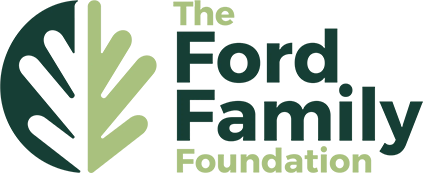Veteran policy strategist Tim Inman joins the Foundation as its first Chief Policy and Public Affairs Officer.
Tim will support policy agenda development and implementation, as well as external engagement and communications. Tim, who grew up on a family farm in Elmira, has extensive experience working for the Oregon Legislature and, most recently, with the University of Oregon, where he served as university secretary and vice president for government and community relations.
We met with Tim to learn more about his hopes for advancing the Foundation’s vision and amplifying rural voice in policy arenas.
Can you share a bit about your personal background?
I grew up on a family farm near Elmira, outside of Eugene, where our family has been for six generations. That land has always been kind of an anchoring spot for me in life. I went to Oregon State for my undergraduate degree, and that started some 20 years of being gone from the Lane County community. After graduating from Oregon State, my wife and I moved to the Twin Cities in Minnesota, where she got her graduate degree. We quickly returned to Oregon and landed in the Portland metro area, where we spent the next 13 years. I worked in the Oregon Legislature, serving as chief of staff for then-Speaker of the House Tina Kotek, before returning closer to family and joining the University of Oregon. I took a partial leave from the UO after the 2022 election to lead Governor Kotek’s transition team.
Why did you decide to move from Portland?
My wife and I are two farm kids, and while we enjoyed our time in Portland never felt quite at home in a large urban environment. So, we decided to move a little bit closer to home and family. I took a position in at the University of Oregon after the 2019 legislative session and we landed in the Eugene area, a smaller community that felt a little bit more natural for who we are and the stage we’re at in our lives.
What led you to accept this brand-new role at the Foundation?
I love working for mission-driven organizations, and what I really love is helping those organizations align strategically to deliver value-centered missions. It was hard to say ‘no’ to the prospect of being at an organization that is engaged on a day-to-day basis in trying to be part of figuring out solutions on problems rural communities around the state are grappling with. The Foundation has a fantastic reputation as an organization that’s focused on community—particularly rural communities.
What do you see as the Foundation’s role in navigating toward policy solutions?
As someone who’s been in the public sector for a long time, too often I’ve seen unreasonable expectations for government to address problems. What I’ve learned is that while government has a vital role, the best solutions are when you can pull public, private, and non-profit sectors together and leverage each of their unique strengths together toward shared solutions. An organization like The Ford Family Foundation has a tremendous ability to be a convener—bringing those parties together around shared problems. It’s really powerful and deeply needed, especially in a time where people are more disconnected and divided than ever.
What are you looking forward to most in your new role?
I’m looking forward to engaging with people around the state and bringing rural voices to the table. I’m really interested in finding ways to make systemic changes that help rural communities build capacity and the tools they need to thrive.
Can you talk a little bit about your journey from rural Oregon into politics and policy?
I was a first-generation college student, and while my Grandma Inman had a desire to see her grandkids all go to college, the expectations weren’t always high for me. My guidance counselor talked to me about two options: going to Community College or enlisting in the military. But I’ve always liked to read and I was interested in the wider world. I had a hunger for something, not necessarily more, but different than what was all around me. But I didn’t really have a model for what this might be. This led to me challenging the norms of the environment I was in a bit—I was always willing to argue, push, or look at things a bit differently. This turned out to be a bit of a theme—me feeling like I’m straddling multiple worlds and viewpoints and needing to interpret for the other.
How did this translate into your professional life?
When I got into politics and policy everything takes on a partisan tone, conservative or liberal. I never felt comfortable wearing either of those labels and oftentimes felt my role was to bring an alternative perspective to conversations. In more liberal circles, this often meant helping to share a perspective of rural Oregon as a place where people raise families not just go for hikes. So, my role has always been to try and kind of bridge those gaps between different groups along the political spectrum. That’s the way people come together for solutions.
Your family is obviously at the center of your life. Can you tell us a little bit about them?
 My wife grew up on a working farm west of Eugene. She’s now the deputy director for Lane County Health and Human Services. We have two children, a daughter who started high school this year, and a son who started middle school. They are wonderful and challenging and all those things. I joke sometimes — it only feels like a partial joke — that I moonlight as an Uber driver as I drive them from one soccer event to another. I love it, though. As many parents can attest, there’s something precious about having your kids captured in a car where you can get them to talk for hours.
My wife grew up on a working farm west of Eugene. She’s now the deputy director for Lane County Health and Human Services. We have two children, a daughter who started high school this year, and a son who started middle school. They are wonderful and challenging and all those things. I joke sometimes — it only feels like a partial joke — that I moonlight as an Uber driver as I drive them from one soccer event to another. I love it, though. As many parents can attest, there’s something precious about having your kids captured in a car where you can get them to talk for hours.


